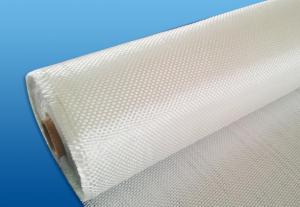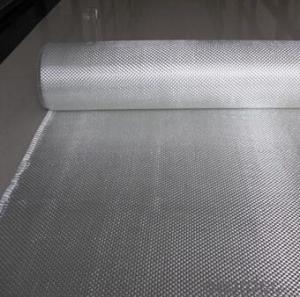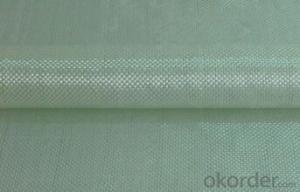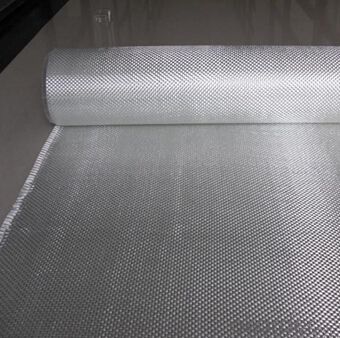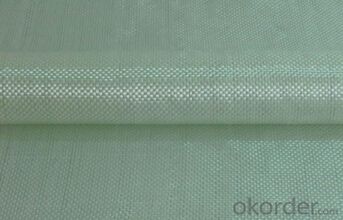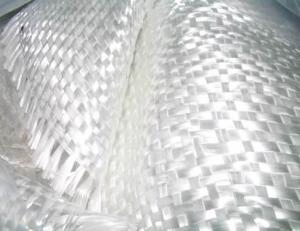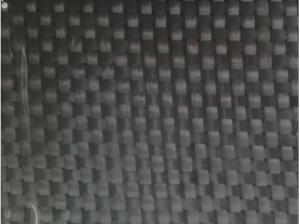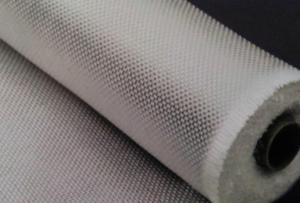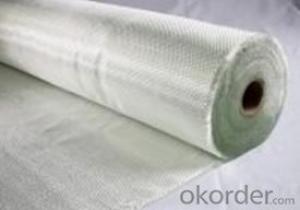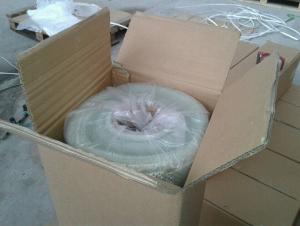Fiberglass Mat Tissue - C-Glass Woven Roving, 300g, 1m
- Loading Port:
- China Main Port
- Payment Terms:
- TT or LC
- Min Order Qty:
- -
- Supply Capability:
- 200000 kg/month
OKorder Service Pledge
OKorder Financial Service
You Might Also Like
Structure of Woven Roving
1)Low Fuzz
2)Fast Wet-out&Impregnation
3)Easy Lay-up&Air Release
4)Excellent Mechanical Strength
5)Good Wet Strength Retension
6)Good Laminate Transparency
Main Features of Woven Roving
1.CWR400
2.360-380g/m2
3.77.5px or 2250px width
4.plastic woven bag
Application of Woven Roving
Unit | Product No. | Weight(gsm) | Technique | Moisture content | combustible matter content(%) |
M | EWR260 | 264±13 | Plain | ≤0.15 | 0.40-0.80 |
M | EWR270 | 261±13.5 | Plain | ≤0.15 | 0.40-0.80 |
M | EWR360 | 354±18 | Plain | ≤0.15 | 0.40-0.80 |
M | EWR500 | 504±25 | Plain | ≤0.15 | 0.40-0.80 |
M | EWR580 | 576±29 | Plain | ≤0.15 | 0.40-0.80 |
M | EWR600 | 622±30 | Plain | ≤0.15 | 0.40-0.80 |
M | EWR800 | 850±40 | Plain | ≤0.15 | 0.40-0.80 |
M | CWR200 | 200±15 | Plain | ≤0.15 | 0.40-0.80 |
M | CWR400 | 385±30 | Plain | ≤0.15 | 0.40-0.80 |
M | CWR600 | 600±45 | Plain | ≤0.15 | 0.40-0.80 |
M | CWR800 | 810±40 | Plain | ≤0.15 | 0.40-0.80 |
Images:
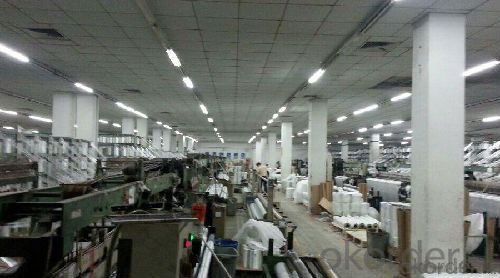
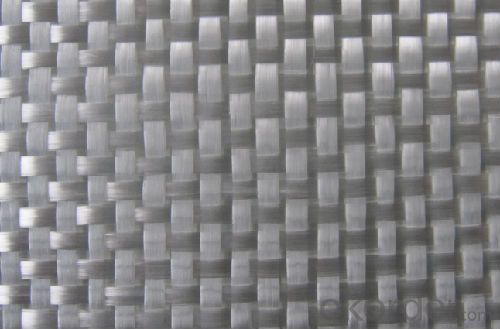
FAQ of Woven Roving
1. Why Choose us?
CNBM is a stated own company, provide the guarantee for the best quality, best service and safety business.
2. How will we guarantee the quality?
a, ISO 9001-2008 quality control system;
b, Strict and regular quality control in production;
c, Inspeciation when loading into container before shippment;
d, Sample stock for one year for quality tracing and record.
3. What is your MOQ?
Our MOQ is one pallet.
4. Can you provide sample?
Yes, samples are in stock. we can offer free sample for you.
5. Payment terms?
We can accept L/C, T/T etc.
6. Do you offer OEM service?
Yes, we can print customers’ logo on the packaging;
And the size and specification can be produced and design according to your demand.
- Q: Can fiberglass mat tissue be used for boat building?
- Yes, fiberglass mat tissue can be used for boat building. It is commonly used as a reinforcement material in boat construction due to its strength, durability, and ability to resist water damage.
- Q: What are the typical dimensions and roll sizes of fiberglass mat tissue?
- Fiberglass mat tissue dimensions and roll sizes may vary depending on the product and manufacturer. Typically, rolls of fiberglass mat tissue come in widths ranging from 1 to 6 feet and lengths ranging from 100 to 1000 feet. The thickness of the tissue can range from 0.5 to 1.5 millimeters. Certain manufacturers may provide tailored sizes and lengths to meet specific project needs. To obtain the precise dimensions and roll sizes of fiberglass mat tissue, it is advisable to consult the manufacturer or supplier.
- Q: What is the thermal conductivity of fiberglass mat tissue?
- The thermal conductivity of fiberglass mat tissue is typically low, ranging from 0.03 to 0.05 W/m·K. This means that fiberglass mat tissue is a good insulator and can effectively resist the transfer of heat. Its low thermal conductivity makes it suitable for applications such as thermal insulation in buildings, industrial equipment, and appliances.
- Q: Can fiberglass mat tissue be used for making lightweight ceilings?
- Yes, fiberglass mat tissue can be used for making lightweight ceilings. Fiberglass mat tissue is a thin and lightweight material made from fiberglass strands that are bonded together with a binder. It is commonly used in construction and building applications due to its excellent strength-to-weight ratio. When used for making lightweight ceilings, fiberglass mat tissue can provide several advantages. Firstly, it is lightweight, which makes it easier to handle and install. This can save time and effort during construction or renovation projects. Additionally, fiberglass mat tissue is also known for its high tensile strength and durability, making it a suitable choice for ceilings that need to withstand various loads and stresses. Furthermore, fiberglass mat tissue has good thermal insulation properties, which can help in maintaining a comfortable indoor environment. It can also offer sound insulation benefits, reducing noise transmission between different spaces or floors. Moreover, fiberglass mat tissue is resistant to moisture, mold, and mildew, which makes it suitable for areas with high humidity or moisture concerns such as bathrooms or kitchens. It is also non-combustible, providing an added level of fire resistance to the ceiling structure. In conclusion, fiberglass mat tissue can indeed be used for making lightweight ceilings. Its lightweight nature, strength, durability, thermal and sound insulation properties, as well as resistance to moisture and fire, make it a suitable choice for various ceiling applications.
- Q: Is fiberglass mat tissue suitable for insulation in sports facilities?
- Yes, fiberglass mat tissue is suitable for insulation in sports facilities. It is a commonly used material for insulation due to its excellent thermal insulation properties, durability, and resistance to moisture. Additionally, fiberglass mat tissue is lightweight and easy to install, making it a practical choice for sports facilities where energy efficiency and temperature control are important factors.
- Q: Can fiberglass mat tissue be used for insulation in pharmaceutical storage areas?
- Yes, fiberglass mat tissue can be used for insulation in pharmaceutical storage areas. Fiberglass mat tissue is a versatile material that offers excellent thermal insulation properties. It is often used in various industries, including pharmaceuticals, due to its ability to regulate temperature and provide insulation against heat transfer. In pharmaceutical storage areas, maintaining the appropriate temperature is crucial to ensure the integrity and stability of stored medications and vaccines. Fiberglass mat tissue can help create a temperature-controlled environment by reducing heat transfer between different areas and protecting the stored products from external temperature fluctuations. Additionally, fiberglass mat tissue is lightweight, easy to install, and resistant to moisture, making it suitable for pharmaceutical storage areas where cleanliness and hygiene are essential. It can be easily placed between walls, ceilings, and floors to provide a barrier against heat flow, thus maintaining the desired temperature inside the storage area. Moreover, fiberglass mat tissue is a non-combustible material, which adds an extra layer of safety in pharmaceutical storage areas. It does not contribute to the spread of fire, ensuring the protection of valuable pharmaceutical products and reducing the risk of fire-related accidents. Overall, fiberglass mat tissue is an effective choice for insulation in pharmaceutical storage areas, providing thermal regulation, moisture resistance, cleanliness, and fire safety. It helps maintain the required temperature and ensures the integrity and stability of stored medications and vaccines.
- Q: Does fiberglass mat tissue require any special precautions during transportation?
- Special precautions must be taken during the transportation of fiberglass mat tissue as it is a delicate material that can easily be damaged if not handled correctly. To ensure safe transportation, several measures should be implemented. To begin with, it is necessary to pack the fiberglass mat tissue in a strong and durable material that can protect it from external impacts and vibrations. Heavy-duty cardboard boxes or wooden crates should be used to provide sufficient cushioning and support. Furthermore, it is vital to clearly label the packaging as "Fragile" or "Handle with Care" to alert handlers about the delicate nature of the product. This will help prevent any mishandling or rough treatment during transportation. In addition, the fiberglass mat tissue should be stored and transported in an upright position to minimize the risk of bending or folding that could potentially damage the material. It is also important to avoid placing heavy objects on top of the fiberglass mat tissue to prevent unnecessary pressure or crushing. Lastly, it is advisable to utilize secure and reliable transportation services with experience in handling delicate materials like fiberglass mat tissue. This ensures that the product is transported with the utmost care and attention, reducing the likelihood of damage during transit. By adhering to these special precautions, the risk of damage to the fiberglass mat tissue during transportation can be significantly reduced, guaranteeing its arrival in perfect condition.
- Q: What are the typical mechanical properties of fiberglass mat tissue?
- The typical mechanical properties of fiberglass mat tissue include high strength, excellent tensile and tear resistance, good dimensional stability, and low elongation. Additionally, it has a high modulus of elasticity and is resistant to corrosion, chemicals, and moisture.
- Q: Is fiberglass mat tissue resistant to solvents?
- Yes, fiberglass mat tissue is generally resistant to solvents.
- Q: Is fiberglass mat tissue suitable for insulation in pharmaceutical plants?
- Fiberglass mat tissue is not typically suitable for insulation in pharmaceutical plants. Pharmaceutical plants require insulation materials that meet specific requirements, such as being non-porous, non-shedding, and resistant to moisture and chemicals. Fiberglass mat tissue is a porous material and may shed fibers, which can contaminate the pharmaceutical production environment. Additionally, it may not provide adequate resistance to moisture and chemicals, which are common in pharmaceutical plants. It is recommended to use insulation materials that are specifically designed and certified for pharmaceutical applications to ensure they meet the necessary standards and regulations for insulation in these sensitive environments.
Send your message to us
Fiberglass Mat Tissue - C-Glass Woven Roving, 300g, 1m
- Loading Port:
- China Main Port
- Payment Terms:
- TT or LC
- Min Order Qty:
- -
- Supply Capability:
- 200000 kg/month
OKorder Service Pledge
OKorder Financial Service
Similar products
Hot products
Hot Searches
Related keywords
